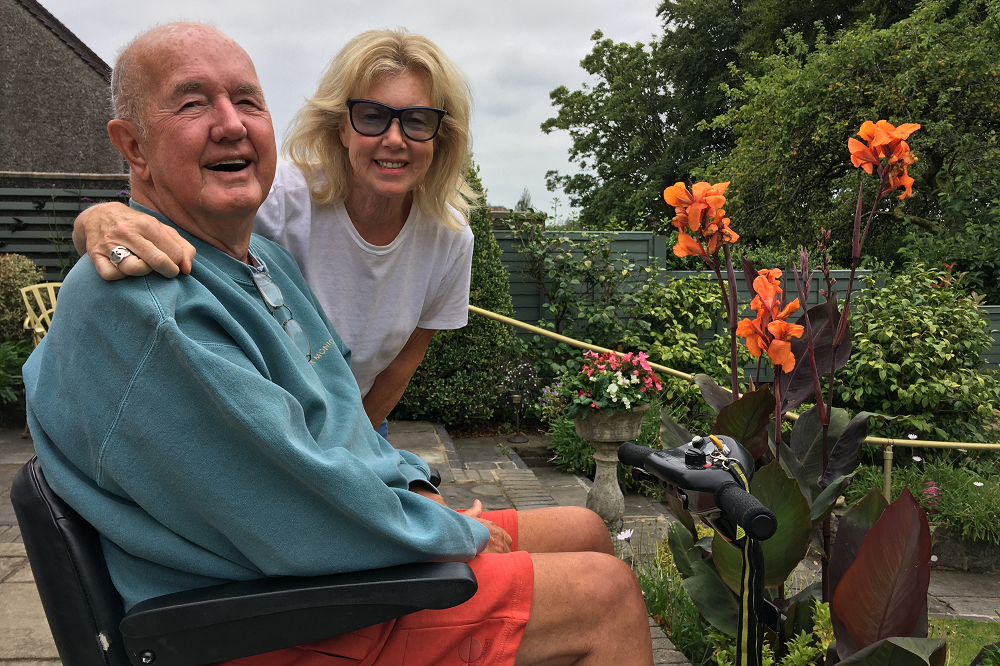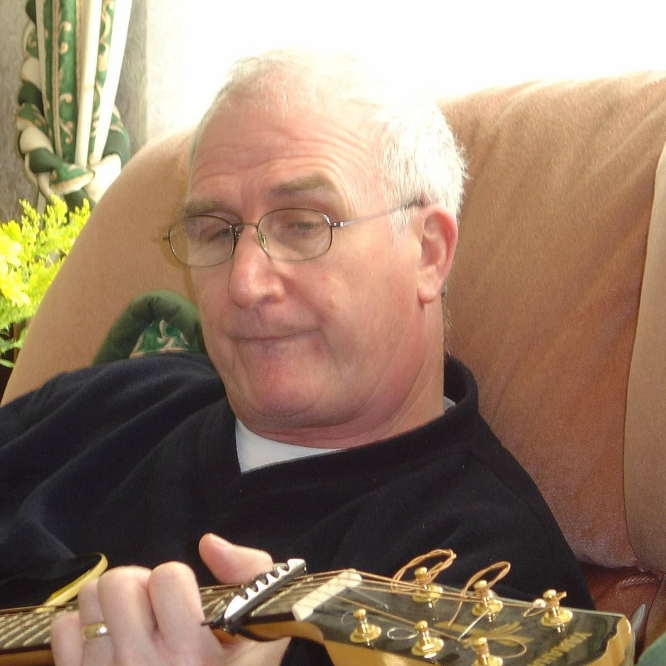Families welcome introduction of motor neurone disease charter

Richard Youle, local democracy reporter
Swansea Council’s support for a motor neurone disease (MND) charter has been welcomed by families affected by the incurable condition.
Members of full council voted unanimously to back the charter, which calls for the right to an early diagnosis, the right to access quality care and treatments, and the right for carers to be valued, listened to and well-supported.
More than 33,600 organisations and individuals have signed up to it.
Rob and Marilyn Wilkinson, of Sketty, said anything to raise awareness of the disease and boost fundraising to try to find a cure was worthwhile.
Mr Wilkinson was diagnosed with MND six years ago after he began having difficulty pronouncing certain words and losing some coordination in a leg.
It was thought Mr Wilkinson might have multiple sclerosis, but a series of tests eventually eliminated that and other possible conditions, leaving MND as the diagnosis.
Speaking through a text-to-voice app on his iPad, Mr Wilkinson said: “At first I was devastated, and then I got on with life.”
The disease gradually blocks messages from nerves called the motor neurones from reaching the person’s muscles, affecting how they walk, talk, eat, drink and breathe.
Not all symptoms will affect everyone, or in the same order or same speed. MND, however, is life-shortening and there is no cure.
The Motor Neurone Disease Association, which launched the charter, said around one in 300 people will be diagnosed with MND in their lifetime.
‘Our worst nightmare’
Mrs Wilkinson described the diagnosis as being “our worst nightmare”, and recalled being in tears along with her husband.
She added: “The consultant said to us, ‘Live in the day.’ I always remember that.”
The couple took holidays to places including Cambodia, Vietnam and India.
Mr Wilkinson, a hard-working former manager at a printing and packaging firm in Neath, began using a walking stick and then a three-wheeled walking aid.
He now mainly uses an electric scooter and, much to his frustration, struggles with speech.
But he can still drive the couple’s automatic car and goes with his wife for meals out with friends and family.
“I never complain about motor neurone disease,” he said.
The progression has been slower for the 73-year-old than for other people with MND, and he keeps his brain active.
But, for someone who could turn his hand to plastering, plumbing and electrics, the horizons have narrowed.
Every three months Mr Wilkinson sees a team at Morriston Hospital comprising a consultant, nurse, respiratory nurse, occupational therapist, physiotherapist, dietician and speech therapist.
He and his wife also attend monthly coffee mornings with other people affected by MND.
Adaptations have been installed at the couple’s home to accommodate his needs.
Mr Wilkinson said he would like the council do more to encourage the provision of disability toilets in restaurants.
His wife, who used to work in the NHS, said she has developed coping mechanisms and tried to get out every day.
“It has affected my life – you can’t go out (on your own) in the evenings or stay overnight – but because Rob is upbeat, I’m okay,” she said.
Her husband, she said, was “very accepting” of the disease.
She hoped that a MND breakthrough would happen but reckoned it probably wouldn’t be in her or her husband’s lifetime.
When the Covid pandemic hit in March 2020, the couple said people with MND weren’t on the most vulnerable list at first, but that this was changed.
“He really took shielding very, very seriously,” said Mrs Wilkinson, 67.
Her husband said he accepted his circumstances.
He added: “I’m surprised with how people in general are so nice to me.”
The profile of MND has risen in recent years, in part due to high profile cases including former international rugby union player Doddie Weir and recently retired rugby league star Rob Burrow.

The motion backing the charter was brought by Cllr Sam Pritchard, who said he was asked to do so by the family of Keith Davies, of Swansea.
Mr Davies was diagnosed with MND in April this year and died just two months later.
Cllr Pritchard said the keen musician was born in 1949, and grew up in Hafod.
Mr Davies played in a number of bands, was a member of Mynyddbach Bowls Club, and had been a senior social services driver with the old West Glamorgan County Council and then Neath Port Talbot Council.
Cllr Pritchard said Mr Davies lost the ability to sing, then struggled with speech and swallowing certain foods.
“That eventually led to the sapping of his strength,” he said. “He lost the ability to move his arms, to drive, and then eventually to play the guitar, which he loved.
“Despite this, he remained his same humorous self.”
Cllr Pritchard said the charter was not just for the late Mr Davies and his family, but for everyone affected by MND now and in the future.
Party leaders wholeheartedly backed the charter, and all councillors voted in favour of the motion.
Councillors were keen to ensure that it translated into action, with particular emphasis on diagnosis times being accelerated and the right equipment being provided when the need arose.
Cllr Cheryl Philpott said it was very important that staff dealing with early cases of MND dealt with them very quickly and “give it that importance”.
Support our Nation today
For the price of a cup of coffee a month you can help us create an independent, not-for-profit, national news service for the people of Wales, by the people of Wales.





